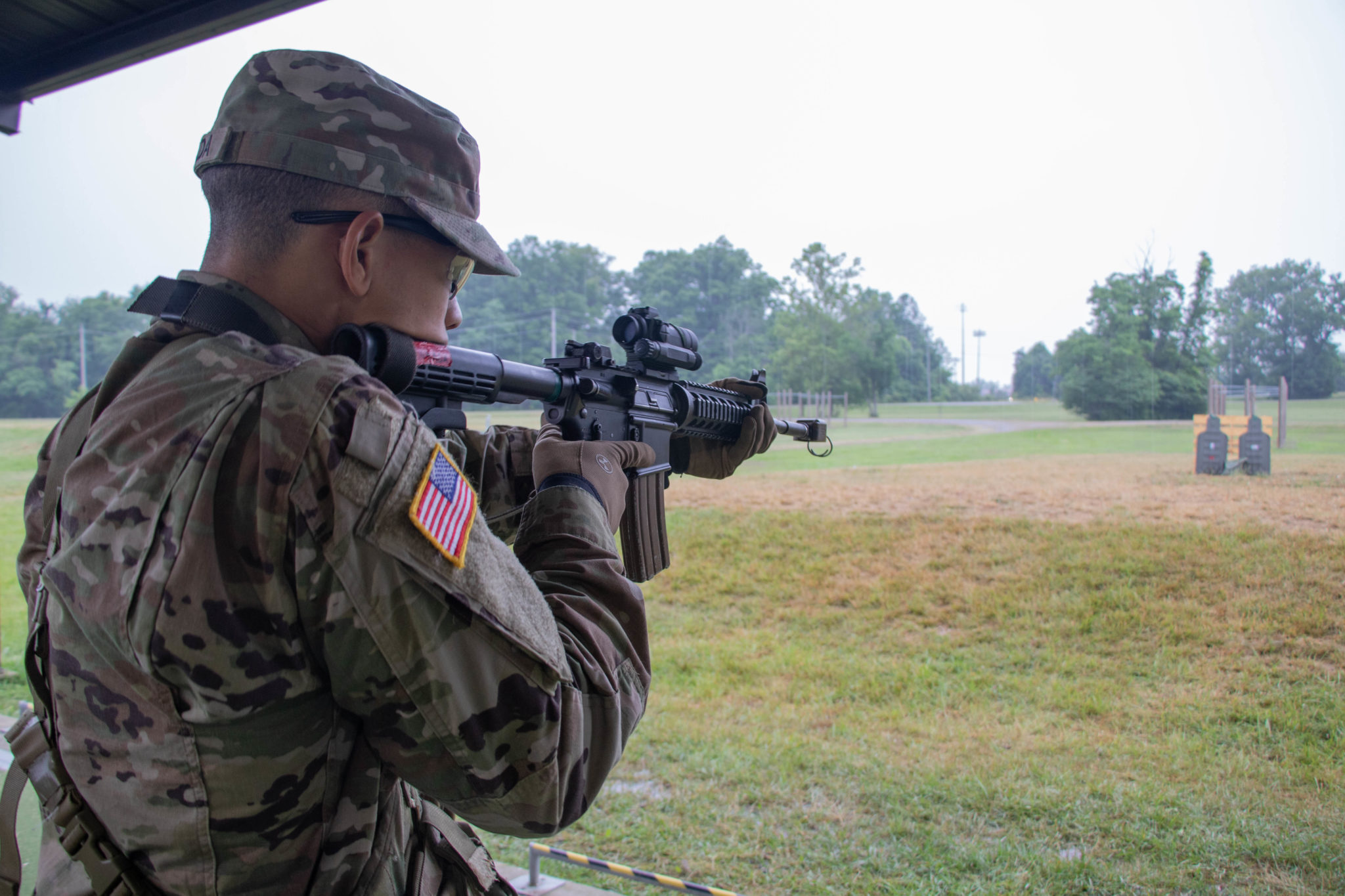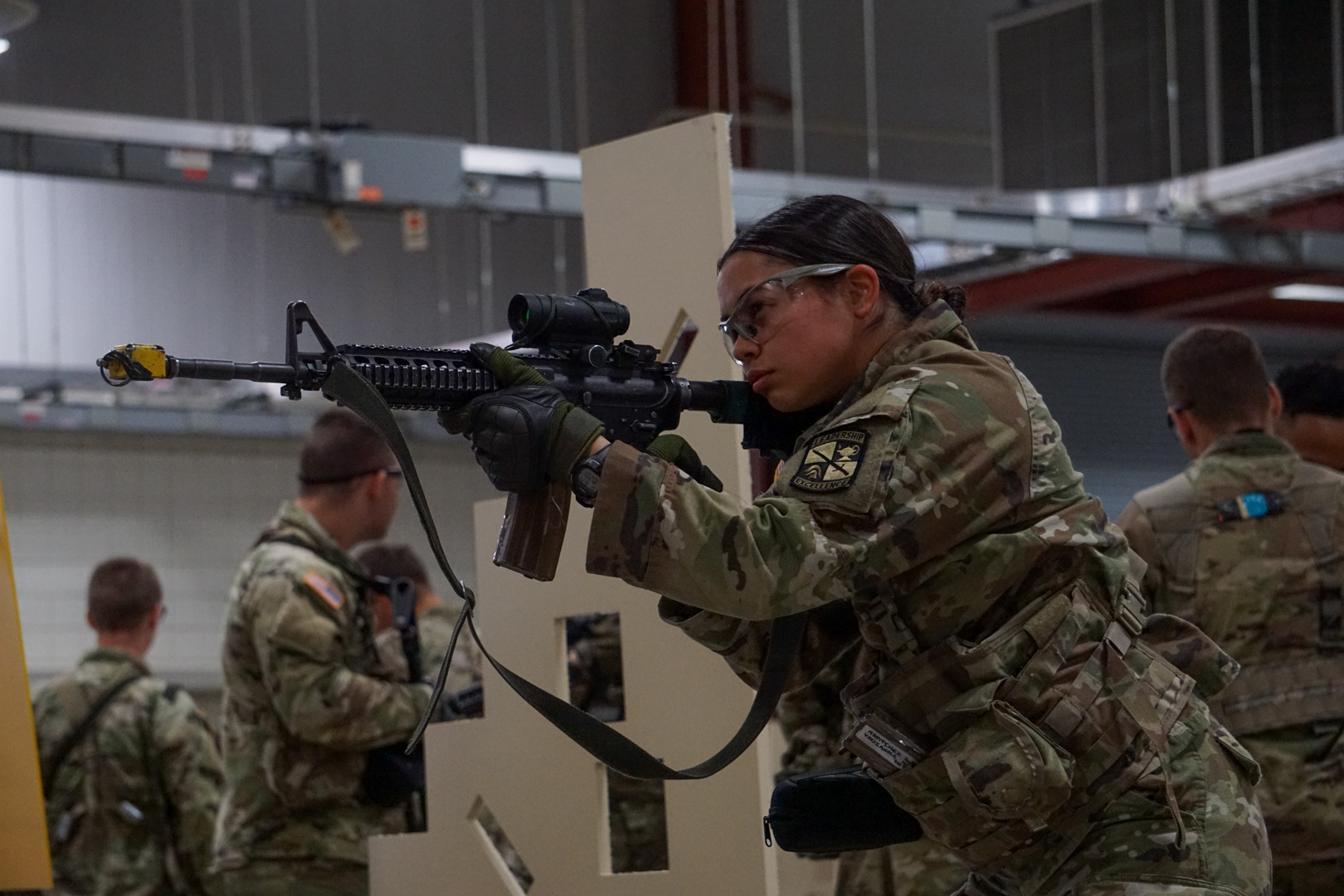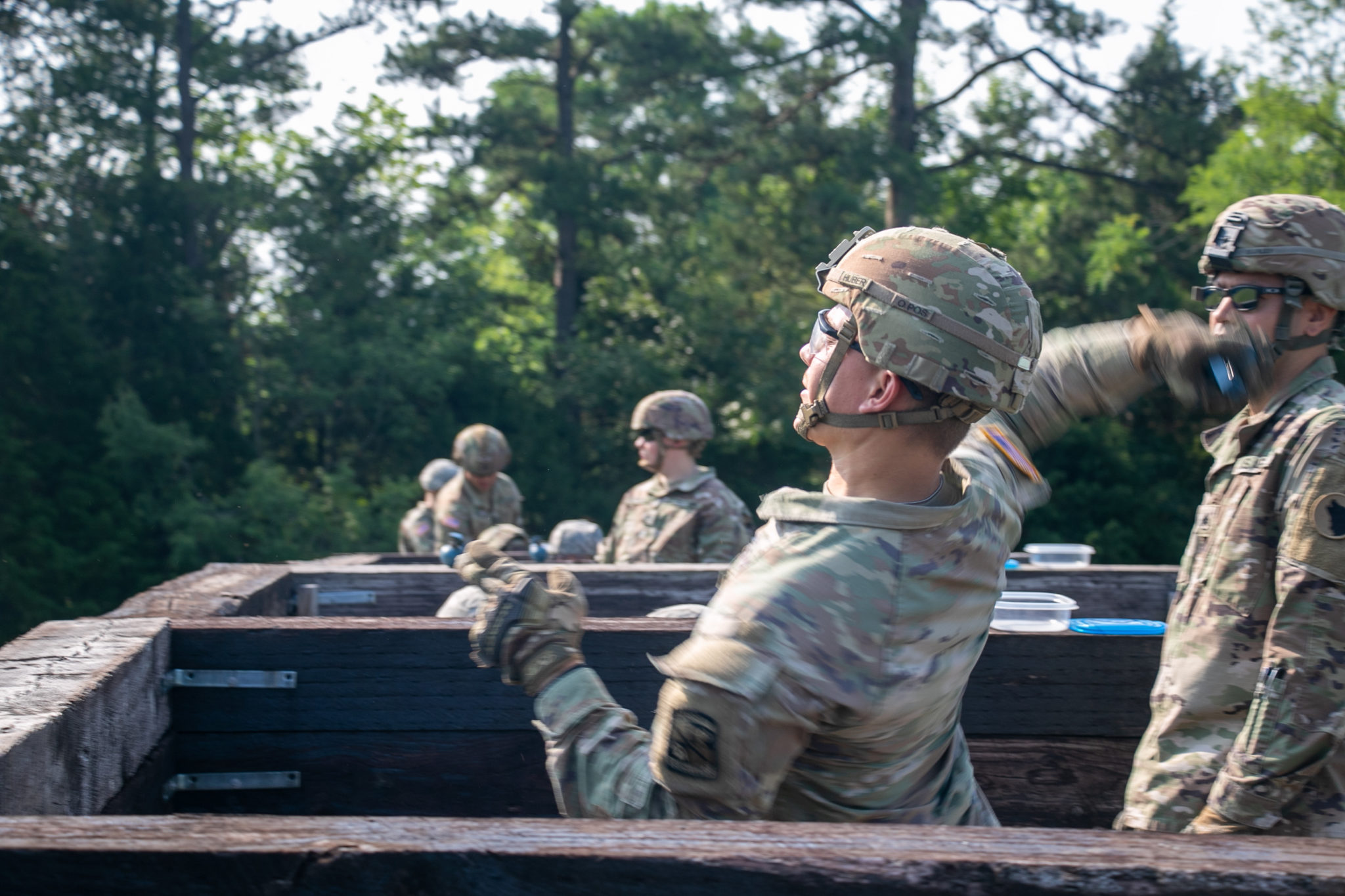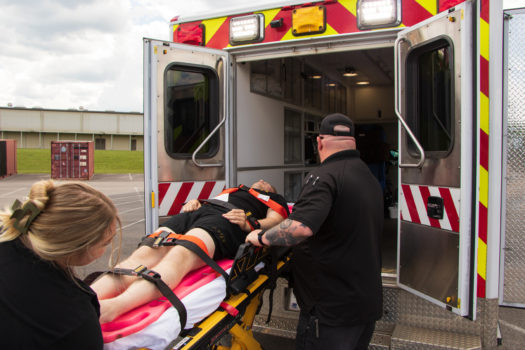
FORT KNOX, Ky. – The Army’s medical professionals completed heat casualty evacuation training in Fort Knox, Ky. before Cadet Summer Training began May 31, 2023.
Completing training before the arrival of the 1st Regiment ensures the safety of all Cadets and Cadre. CST training occurs in extreme weather conditions, making Cadets more susceptible to heat-related illnesses.
“It’s hot,” said Spc. Chase Peitsmeyer. “Cadets are going to be sweating a lot while doing extraneous activities. The Cadets are much more likely to fall out during camp.”
Working based off his experience as a medic in Fort Riley, Ks., Peitsmeyer explained that hydrating, eating balanced meals, and getting an adequate amount of sleep are the three key components a Cadet must follow in order to prevent a heat-related illness during CST.
During CASEVAC training, the Army’s medical team practiced taking care of a patient who just experienced a heat stroke.
“Witnessing rehearsals lets us know that we are ready for any situation,” said Sgt. 1st Class Sal Ramirez from California Polytechnic State University in San Luis Obispo, Ca.
As a Cadre member, Ramirez witnessed the entirety of the CASEVAC practice scenario.
Throughout the duration of CST, heat-related emergencies can happen at any moment, so the pressure is on all medical staff to do their job and stay alert. This often creates tension between EMS, fire services, and Army medics during CASEVAC training. All these separate entities must coordinate with one another, while acting in their own distinct roles.
Clayton Jefferies, a paramedic out of Fort Knox EMS for civilians, explained, “There’s always a communication issue when trying to figure out everybody’s expectation; everybody reacts to situations differently.”
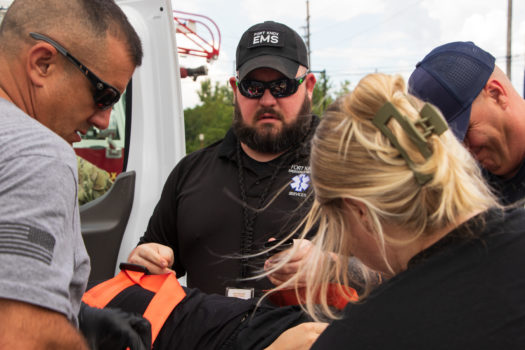
Jefferies was not the only participant who spoke on the stressful environment that this training creates. Peitsmeyer also mentioned how nerve-racking CASEVAC training can be. During the practice scenario, all the higher-ranking personnel were watching, putting extra pressure on the new members of the Fort Knox medical staff like Peitsmeyer who never experienced CST before.
Peitsmeyer explained, “Seconds and minutes count. Getting the reps and understanding how people work under stress is important to go and get before you do the real deal.”
Despite how chaotic a heat CASEVAC can get, at the end of the day, the medical staff for CST are willing to practice in the heat to ensure that they are ready to serve all the Cadets training on base this summer.

